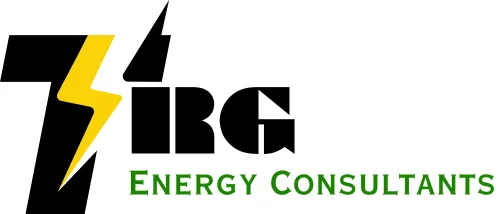Industry Associations and Organizations
Industry Associations and Organizations
Industry Associations and Organizations
Industry associations and organizations play a vital role in fostering collaboration, knowledge sharing, and innovation within the energy procurement and utilities sector. These entities bring together industry stakeholders, including utilities, suppliers, service providers, and professionals, to address common challenges and promote best practices. Here are additional insights into the significance of industry associations and organizations in the realm of energy procurement and utilities:
Knowledge Sharing and Networking: Industry associations provide platforms for professionals to network, exchange ideas, and share experiences. They organize conferences, workshops, and seminars where experts discuss emerging trends, technological advancements, and best practices in energy procurement and utilities. These events facilitate learning and enable professionals to stay up to date with the latest industry developments.
Research and Publications: Many industry associations and organizations publish research papers, reports, and publications that delve into various aspects of energy procurement and utilities. These resources offer insights into market trends, policy developments, case studies, and practical guidance for professionals in the field. By accessing these publications, individuals can gain valuable knowledge and leverage industry expertise.
Standards Development: Industry associations often play a key role in developing industry standards and guidelines. These standards help establish best practices, ensure safety, promote efficiency, and facilitate interoperability within the energy sector. By participating in standards development activities, organizations can align their energy procurement and utilities practices with recognized industry norms.
Advocacy and Policy Influence: Industry associations advocate for the interests of their members and the broader energy sector. They engage with policymakers, regulatory bodies, and government agencies to shape energy policies, regulations, and market structures. Through their collective voice, these organizations work to create an enabling environment for effective energy procurement and utilities practices.
Training and Education: Many industry associations offer training programs, certifications, and educational resources to enhance professional skills and competencies in energy procurement and utilities. These initiatives help professionals stay updated with evolving industry requirements, build technical expertise, and enhance their understanding of energy markets and procurement strategies.
Collaborative Projects and Initiatives: Industry associations facilitate collaborative projects and initiatives among their members. These projects focus on addressing common challenges, fostering innovation, and driving positive change in the energy procurement and utilities sector. By participating in such initiatives, organizations can benefit from collective expertise, shared resources, and collaborative problem-solving.
Industry Representation: Industry associations serve as a unified voice for the sector, representing the interests of their members on relevant issues. They provide a platform for organizations to address industry-wide concerns, share feedback, and collaborate on advocacy efforts. By joining forces, industry players can have a stronger impact on policy decisions and industry developments.
Accessing the resources and engaging with industry associations and organizations allows professionals and organizations to tap into a wealth of knowledge, industry networks, and expertise. These associations serve as valuable resources for staying informed, fostering collaboration, and driving advancements in energy procurement and utilities practices.
Industry Associations and Organizations
Industry associations and organizations play a vital role in fostering collaboration, knowledge sharing, and innovation within the energy procurement and utilities sector. These entities bring together industry stakeholders, including utilities, suppliers, service providers, and professionals, to address common challenges and promote best practices. Here are additional insights into the significance of industry associations and organizations in the realm of energy procurement and utilities:
Knowledge Sharing and Networking: Industry associations provide platforms for professionals to network, exchange ideas, and share experiences. They organize conferences, workshops, and seminars where experts discuss emerging trends, technological advancements, and best practices in energy procurement and utilities. These events facilitate learning and enable professionals to stay up to date with the latest industry developments.
Research and Publications: Many industry associations and organizations publish research papers, reports, and publications that delve into various aspects of energy procurement and utilities. These resources offer insights into market trends, policy developments, case studies, and practical guidance for professionals in the field. By accessing these publications, individuals can gain valuable knowledge and leverage industry expertise.
Standards Development: Industry associations often play a key role in developing industry standards and guidelines. These standards help establish best practices, ensure safety, promote efficiency, and facilitate interoperability within the energy sector. By participating in standards development activities, organizations can align their energy procurement and utilities practices with recognized industry norms.
Advocacy and Policy Influence: Industry associations advocate for the interests of their members and the broader energy sector. They engage with policymakers, regulatory bodies, and government agencies to shape energy policies, regulations, and market structures. Through their collective voice, these organizations work to create an enabling environment for effective energy procurement and utilities practices.
Training and Education: Many industry associations offer training programs, certifications, and educational resources to enhance professional skills and competencies in energy procurement and utilities. These initiatives help professionals stay updated with evolving industry requirements, build technical expertise, and enhance their understanding of energy markets and procurement strategies.
Collaborative Projects and Initiatives: Industry associations facilitate collaborative projects and initiatives among their members. These projects focus on addressing common challenges, fostering innovation, and driving positive change in the energy procurement and utilities sector. By participating in such initiatives, organizations can benefit from collective expertise, shared resources, and collaborative problem-solving.
Industry Representation: Industry associations serve as a unified voice for the sector, representing the interests of their members on relevant issues. They provide a platform for organizations to address industry-wide concerns, share feedback, and collaborate on advocacy efforts. By joining forces, industry players can have a stronger impact on policy decisions and industry developments.
Accessing the resources and engaging with industry associations and organizations allows professionals and organizations to tap into a wealth of knowledge, industry networks, and expertise. These associations serve as valuable resources for staying informed, fostering collaboration, and driving advancements in energy procurement and utilities practices.

